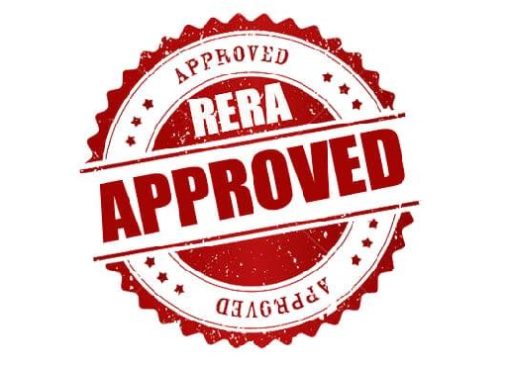In the present business landscape that is dynamic and competitive, having a steady cash inflow and outflow is important for any business to prosper and grow in the long run. However, property owners may face monetary obstacles because of limited liquidity or delays in rental payments.
Leveraging rental income to secure funds for a variety of financial demands, such as supporting business initiatives, startups, expansion, or even managing working capital needs, is made possible by Lease Rental Discounting (LRD).
Understanding Lease Rental Discounting (LRD)
Lease Rental Discounting is a distinct financial tool that facilitates the owners of commercial property in India to utilise the rental income derived from their assets for procuring term loans.
The loan amount is primarily calculated based on the rental income, the tenure of the lease agreement, and the property’s valuation.
The borrower can apply for the loan in exchange for rental receivables from the lease and give out the property in the form of collateral, thus making it a lucrative mode of getting immediate funds for commercial property owners.
The process of securing the loan is pretty simple – all you need to do as a property owner is to provide documents to the lender, including monthly rental receipts, property ownership proof and lease agreement. Depending on the property owner’s long-term fund flow and other aspects, the lender sanctions a loan amount.
Eligibility Criteria of LRD in India
There are no specified criteria for availing LRD as such; it varies from one institution to another. Mentioned below are the most preferred criteria for getting the best results:
- Age Criteria: The loan applicant must be 21 or older, and the maximum limit is 60 years for a salaried person and 65 years for a self-employed person.
- Borrower’s Criteria: The borrower must have leased property to a reputable brand or corporation. The loan is given to individuals, self-employed and professionals.
- Lease Agreement Tenure: The duration of a lease agreement is an important aspect to consider. The bank or other financial institution may or may not give a loan if the lease duration is less than five years. For the loan to be granted, the minimum preferred duration is five years, and the maximum is ten years.
- CIBIL Score: The LRD facility gives a loan to the borrower having a decent and creditworthy CIBIL score. The record and CIBIL score are two main factors for determining whether to sanction or reject loan applications.
![]()
Also, it is essential to have a healthy debt-to-income ratio and have a legally binding lease agreement with a credible tenant, the rental yield of which needs to be accurate and continuous. The property must comply with all legal terms and not be stuck in any legal matter.
Advantages of Lease Rental Discounting loan
- Funds Can be Accessed Immediately: One of the main advantages of opting for LRD is its prompt access to funds that property owners can enjoy. The future rental income, property owners can receive secured loans, which allows them to cater to their urgent financial requirements in a timely and immediate manner without any delays or hassles.
- Competitive Rates of Interest: LRD has more attractive and competitive interest rates than traditional loans. This is so because rental yields serve to be a steady payment source. In normal cases, the interest rates are lower when compared to those given out for personal loans or even unsecured business loans. Hence, this makes LRD a useful financial tool for property owners.
- Offers Tax Benefits: This is another advantage of getting LRD for the property owners. The interest amount paid on the loan can be used for claiming tax deductions under the relevant section of the Income Tax Act, 1961. Hence, this decreases the total tax burden of the property owner, which makes LRD a tax-friendly financing tool.
- Helps in Knowing Real Property Value: LRD allows property owners to unleash the real net worth of the commercial property without needing to sell it. By using the rental income, property owners can avail a large chunk of the property value in the form of a loan, which gives them the required liquidity. Also, it lets the owners keep the property ownership while reaping benefits from its appreciation over time.
Apart from these pros that can be reaped by the commercial property owners, LRD also provides several advantages to lenders. The regular cash flow coming from the rental income can act as a decent source of repayment, thus alleviating the probability of making a payment default.
The Process of Obtaining an LRD
The online LRD application process is easy and completed in a few steps. All you need to do is:
- Choose a Bank: Conducting comprehensive research on various banks and other financial institutions offering such loans is crucial. Thereafter, comparing their terms, conditions, interest rates and customer service can be done to arrive at a rational decision. After comparing, choose the bank or institution that meets your needs and preferences in the best possible manner.
- Know Your Requirements: Every bank might have its criteria for offering an LRD loan. It is important to familiarise yourself with the respective criteria like the type of property, applicant’s profile and minimum rental income.
- Collect Relevant Documents: Some of the key documents needed include:
- Proof showing property ownership.
- Rental Income Proof.
- Lease agreement with the tenant.
- Bank statements and other related documents.
After following the pointers, you can move forward with the online application procedure which consists of visiting the selected bank’s website and filling out the application form for lease rental discounting.
Lastly, you can track your application as many banks offer an online tracking server for checking the status of your LRD loan application.
Read Also: Home Loan vs Land Loan – All You Need to Know
Key Considerations Before Opting for LRD
Before proceeding with opting for LRD, it is vital to consider various factors like:
- Interest Rates,
- Terms of Repayment,
- Amount of Loan, and
- Eligibility Criteria.
Future Trends in LRD and Real Estate Financing in India
The future of Lease Rental Discounting (LRD) appears bright and promising for both borrowers and lenders. With an increasing market trend in the present and future, LRD is set to play an even greater role in driving financing options forward, particularly with Grade-A properties and secure rental income streams becoming more prevalent.
Many people are still not aware of the advantages that come with making real estate investments and its associated potential. It is one of the best ways to grow wealth among investors. There are many routes of securing real estate financing and knowing about its pros and cons can make the journey smoother and rewarding in the long run.
Read Also: Commercial vs. Residential Property: Which is the Better Investment for You?
Conclusion
Lease Rental Discounting has been a great financing option for commercial property owners and will continue to remain so. Businesses can access required capital by capitalising on rental returns while offering growth and financial stability. The demand for commercial property financing is on the rise, and Lease Rental Discounting is a win-win solution for lenders and property owners.
Are you looking to make the most of your commercial property investments? Discover properties that are ideal for Lease Rental Discounting opportunities, providing a steady rental income while unlocking financial growth. Explore now and secure a property that works for you!
FAQs
- What is the maximum loan amount I can get through LRD?
The maximum loan amount that can be taken through LRD differs by bank and ranges from Rs.5 lakhs to Rs.31.5 crores. However, it depends on the lender’s policy, property valuation, and rental income.
- Can I use LRD for properties not owned by me?
No, you cannot use LRD for properties not owned by you because ownership is crucial for the lender’s collateral requirements.
- How does the interest rate for LRD compare to traditional loans?
The interest rate for LRD differs from traditional loans concerning the nature of loans, terms of agreements and the associated risks. LRD interest rates may be competitive or slightly lower than traditional loans since they are secured by rental income and property value.
- What happens if the rental income decreases?
A decline in rental revenue may affect the borrower’s capacity to make EMI payments if rental income serves as the main source of repayment.
- Is LRD suitable for all types of properties?
LRD is more common for commercial properties and less for residential properties. However, eligibility depends on the property’s rental agreement and tenant profile.







